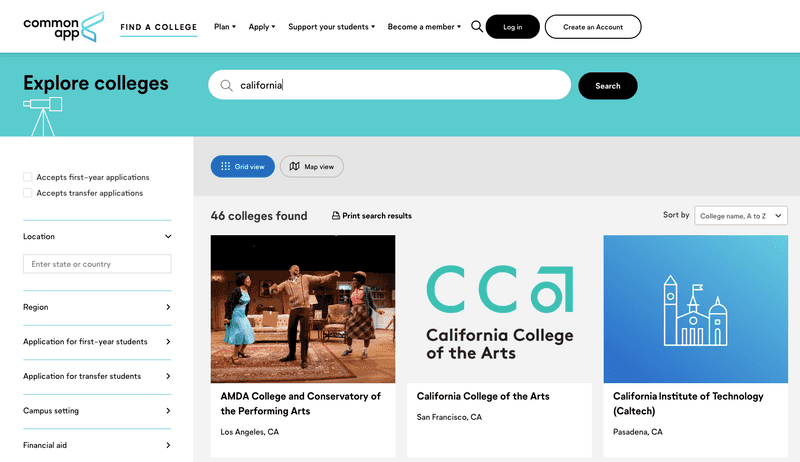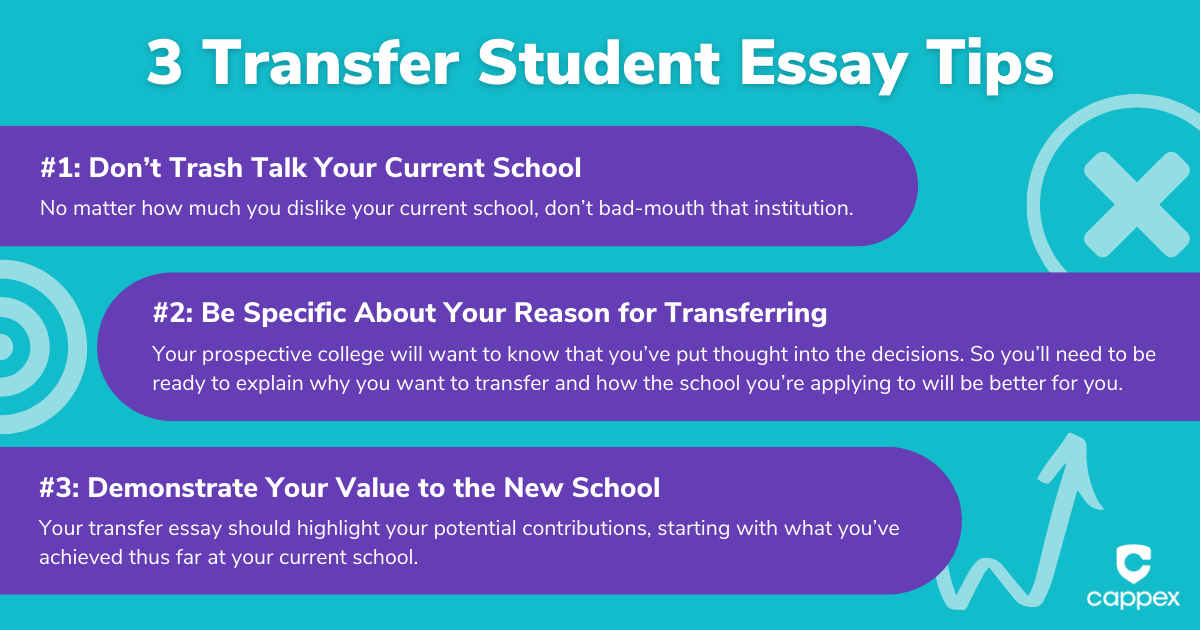Article-at-a-Glance
Understand the basic CSU transfer requirements from community college.
Learn the critical GPA benchmarks needed for a successful transfer.
Discover the application deadlines for CSU transfer.
Explore whether transfer admission is more challenging than freshman admission.
Find out the specific GPA and requirements for transferring to San Diego State University.
Unlocking the CSU Transfer Matrix:
So, you’re thinking about transferring from a community college to a California State University (CSU)? That’s a fantastic move that can open up a world of opportunity! But let’s be real, the process can seem like a maze. Don’t worry, I’m here to guide you through it, step by step.
Comprehensive Steps from Community College to CSU
First things first, you need to know the lay of the land. CSU is one of the largest public university systems in the US, and they’ve got a specific set of rules for transfer students. Most importantly, you need to have completed a minimum of 60 transferable semester units (or 90 quarter units). These aren’t just any units; they need to meet the CSU’s transferable course requirements.
Key GPA Benchmarks for Transfer Eligibility
Now, let’s talk numbers. You need at least a 2.0 GPA to transfer, but that’s just the minimum. To really have a shot, especially at more competitive campuses or programs, you should aim higher. Some programs might ask for a 2.5 or even a 3.0. Check the specific requirements for your target school and program to set the right goal.
Insider View on Transfer Admission Difficulty
Is it tougher to get in as a transfer student? The answer is: it depends. Some programs have more applicants than spots available, making them highly competitive. But here’s the good news – California community college students who meet the requirements often get priority admission to the CSU system. Therefore, meeting the requirements is your ticket to being seriously considered.
Submission Strategies Before the Application Deadline
Deadlines are crucial. Miss them, and it doesn’t matter how good your grades are. The CSU transfer application deadline typically falls between the end of October and the end of November for the following fall semester. Mark your calendar, set reminders, and give yourself plenty of time to gather all the necessary documents.

“Transfer To San Diego State University …” from transferca.org and used with no modifications.
Special Focus: San Diego State Transfer Criteria
San Diego State University (SDSU) is one of the more popular destinations within the CSU system. It’s known for its beautiful campus and dynamic student life. But it’s also competitive. SDSU usually requires a higher GPA for transfer students, and some majors are impacted, which means they have more applicants than available spaces. Research and aim for the higher end of the GPA scale to increase your chances.
Step-by-Step Guide to CSU Transfer Requirements
Alright, let’s break this down into manageable steps. We’ll start by evaluating your eligibility and understanding what documents you need to gather. Then we’ll look at the specific coursework required, known as the ‘Golden Four,’ and finally, the nitty-gritty of the application timeline and deadlines.
Before you dive in, let’s remember the golden rule: always double-check the requirements for your specific situation. Requirements can vary by campus and major, and they can change from year to year. Keep an eye on the official CSU website or contact the admissions office of the university you’re interested in for the most current information.
Evaluating Your Eligibility: Core Prerequisites
So you’ve got your eye on a CSU campus. What now? First, make sure you’ve got the core prerequisites covered:
Completion of at least 60 CSU-transferable semester units.
The ‘Golden Four’ courses: oral communication, written communication, critical thinking, and mathematics/quantitative reasoning, all with grades of ‘C’ or better.
A minimum cumulative GPA of 2.0; however, some campuses and majors may require a higher GPA.
Gathering Your Documents: What CSU Wants to See
With your eligibility confirmed, it’s time to get your paperwork in order. You’ll need:
Official transcripts from all colleges attended, even if you didn’t complete any courses.
High school transcripts if you’ve completed less than 60 transferable units.
Any test scores, like AP, IB, or CLEP, that might earn you college credit.
Details about any coursework in progress or planned before the transfer.
Keep these documents handy. You’ll need them when you fill out your application and possibly again after you’re admitted.
Now, let’s pause here. Take a moment to gather your thoughts, maybe jot down a list of what you need to do next. And when you’re ready, we’ll continue with the rest of the process. Because remember, knowledge is power, and I’m here to make sure you’re fully charged and ready to take this on!
Timeline and Deadlines for CSU Transfer Application
When you’re planning to transfer to a CSU, timing is everything. You need to know the specific dates by which certain steps must be completed. The standard application period for fall admission usually opens on October 1st and runs until November 30th. But don’t wait until the last minute! Starting early gives you the advantage of time to carefully review your application and ensure everything is in order.
Mapping Out Key Dates: From Application Opening to Decision Day
Here’s a typical timeline for your CSU transfer application:
October 1st: Application period opens for fall admission.
November 30th: Deadline to submit applications for fall admission.
March-April: Admission decisions begin to roll out.
May 1st: Deadline to accept admission offers for fall.
July: Final transcripts due to CSU campuses.
Keep in mind that some campuses or programs may have different deadlines. It’s critical to check the specific dates for the CSU campus and program you’re interested in.
Last-Minute Tips: Preparing for Unexpected Delays
Life is full of surprises, and sometimes they can throw a wrench in your plans. To avoid last-minute panic:
Request transcripts well in advance of deadlines.
Keep a checklist of all required documents and tasks.
Stay in touch with your community college advisors and the CSU admissions office to ensure you’re on track.
Now, let’s delve into what you really need to know about GPA requirements for transferring to a CSU.
GPA Requirements Unveiled: What You Really Need for CSU
Your GPA is a key factor in your transfer application. While the minimum is a 2.0, aiming for a higher GPA can significantly improve your chances of admission, especially at more selective campuses or for impacted majors. A strong GPA demonstrates your academic readiness and commitment to your studies.
But there’s more to the story. You should also consider the major you’re applying to. Some majors may require specific prerequisite courses completed with a certain GPA. For example, engineering programs often require higher math and science grades.
It’s also worth noting that GPA isn’t everything. CSU campuses also consider the rigor of your coursework, your personal statement, and extracurricular activities. A holistic approach to your application can showcase your full potential beyond just numbers.
But let’s be real, a strong GPA can be a deal-breaker in competitive scenarios. So, work hard, seek help when you need it, and keep your grades up!
Minimum vs. Competitive: Setting Yourself Apart
The minimum GPA for CSU transfer is 2.0, but let’s aim higher. Here’s why:
Impacted majors and campuses have more applicants than spots, so they often look for GPAs well above the minimum.
A higher GPA can make you eligible for scholarships and other financial aid opportunities.
It can also give you a buffer in case you encounter a particularly tough class down the line.
Therefore, while you should meet the minimum, strive to exceed it to set yourself apart from the crowd.
Majors That Demand More: When a Higher GPA is Non-negotiable
For certain majors, a higher GPA isn’t just recommended—it’s essential. Programs in fields like nursing, engineering, and business often have stricter GPA requirements due to the high volume of applicants and the rigorous nature of the coursework. For these majors, you’ll typically need a GPA well above a 2.0, sometimes as high as a 3.5 or more.
Transferring to San Diego State: The Inside Scoop
Transferring to San Diego State University (SDSU) is a goal for many students. Known for its strong academic programs and vibrant campus life, SDSU attracts a large number of transfer applicants each year. Here’s what you need to know to enhance your chances of joining the Aztec family.
SDSU has specific transfer requirements that you need to meet. These often include a higher GPA than the CSU minimum, especially for impacted majors. Additionally, SDSU values well-rounded applicants who show leadership, community involvement, and other qualities that contribute to a dynamic student body.
Let’s break down the specifics to give you a clearer picture of what SDSU is looking for in transfer students.
Breaking Down SDSU’s Specific Transfer Must-Haves
Here are the essentials for transferring to SDSU: For more detailed information, check out our guide on choosing a college.
Completion of the ‘Golden Four’ with grades of ‘C’ or better.
A competitive GPA, often above 3.0 for many majors.
Completion of major preparation courses with high marks.
Active engagement in extracurricular activities, volunteer work, or leadership roles.
Keep these points in mind as you plan your community college journey with an eye towards transferring to SDSU.
Realistic Expectations: Acceptance Rates and Your Odds
Understanding the acceptance rates for transfer students can help set realistic expectations. SDSU’s acceptance rate for transfer students hovers around 19-20%, making it one of the more competitive CSU campuses. But don’t let that discourage you. With proper planning, strong academic performance, and a well-rounded application, you can be among the successful applicants.
Now, let’s address a common question: Is transferring to a CSU really harder than getting in as a freshman?
Simplifying Transfer Admissions: Is It Really Harder?
There’s a notion that transferring to a CSU is harder than being admitted as a freshman. But the truth is, it’s just different. Transfer students have the advantage of demonstrating their college-level academic abilities through their community college performance. This track record can be a powerful part of your application.
Myths vs. Facts: Debunking Common Transfer Misconceptions
Let’s bust some myths about transferring:
Myth: Transfer students are less likely to get in.
Fact: CSU campuses prioritize California community college transfers, giving them a fair shot at admission.
Myth: You need a perfect GPA to transfer.
Fact: While a strong GPA helps, meeting the major-specific requirements and demonstrating a well-rounded profile are also crucial.
Myth: The transfer process is too complex to navigate successfully.
Fact: With careful planning and the right resources, you can navigate the transfer process smoothly.
As you move forward with your transfer plans, remember that you’re not alone. Utilize your advisors, tap into resources at your community college, and reach out to CSU admissions offices for guidance. And above all, keep your eyes on the prize: a successful transfer to a CSU campus where you can continue to grow academically and personally.
Strategies to Enhance Your Transfer Application’s Strength
Boosting the strength of your transfer application to a CSU is all about showcasing your best self. Here’s how you can make your application stand out:
Highlight your achievements: Don’t be shy about sharing your academic and extracurricular accomplishments. This could include awards, leadership positions, or community service.
Get to know your professors: Strong letters of recommendation from instructors who can speak to your abilities and work ethic can be influential.
Write a compelling personal statement: Share your story, your educational journey, and why you’re passionate about your chosen field of study.
Stay involved: Continue to engage in activities that interest you and contribute to your growth, whether that’s a part-time job, volunteer work, or a campus club.
Each of these elements can provide a fuller picture of who you are and what you bring to the table, beyond just grades and test scores.
Frequently Asked Questions
When navigating the transfer process to a CSU, several questions often come up. Let’s tackle some of the most common ones to clear up any confusion and set you on the right path.
Can I transfer to CSU with a GPA below 2.0?
Technically, the minimum GPA for transfer to a CSU is 2.0 for California community college students. However, if your GPA is below this threshold, transferring can be quite challenging. You may need to explore options such as academic renewal policies at your community college or retaking courses to improve your GPA.
Check with your community college counselor about academic renewal or grade forgiveness policies.
Consider retaking courses where you earned a ‘D’ or ‘F’ to boost your GPA.
Remember, the goal is to present yourself as a strong candidate, and a GPA below 2.0 could hinder your chances.
What are the “Golden Four” courses and why are they important?
The “Golden Four” courses are a set of four foundational courses required for CSU transfer:
Oral Communication
Written Communication
Critical Thinking
Mathematics/Quantitative Reasoning
These courses are crucial because they ensure that you have the essential skills needed for success at a CSU. Completing them with a grade of ‘C’ or better is mandatory for transfer eligibility.
How does the Associate Degree for Transfer (ADT) benefit my application?
An Associate Degree for Transfer (ADT) is a special program that California community colleges offer in partnership with the CSU system. If you earn an ADT, you’re guaranteed admission to a CSU, though not necessarily to a particular campus or major.
Can I appeal a CSU transfer application decision?
If you receive a denial from a CSU campus and believe there has been an error, or if you have new, compelling information, you can appeal the decision. Each campus has its own appeal process, so you’ll need to contact the admissions office directly for guidance on how to proceed.




